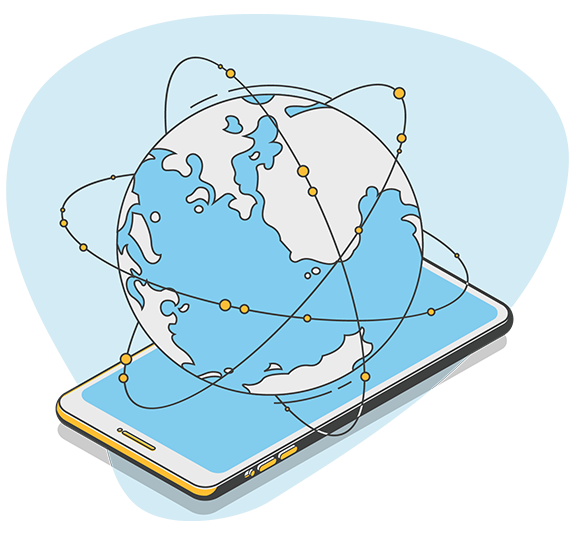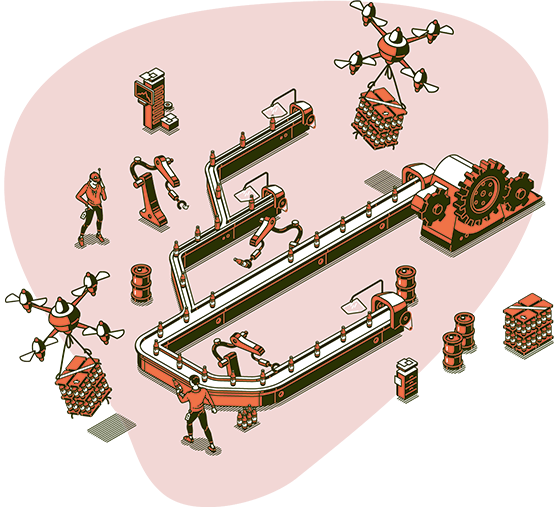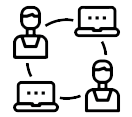Digital
Transformation
in the New Normal
for ASEAN

Hitachi partnered with the Vietnamese state post office to implement a comprehensive cashless e-payment method for Vietnamese citizens to collect their pension and social security payments. With only a third of adult citizens holding a bank accounti, and with banking services being relatively underdeveloped in rural areas, many citizens living in rural areas had to leave their homes and travel long distances to receive these payments.
Thankfully, Hitachi was able to collaborate with the Sumitomo Mitsui Banking Corporation (SMBC) to develop this cashless payment solution and roll it out nationwideii. As a result, a total of over 2.5 million Vietnamese citizens across 63 provincesiii now have access to the new e-payment service. This particularly benefits elderlies and citizens living in rural and mountainous areas, who can now receive their pension and welfare with e-money cards without having to travel and needlessly be exposed to the virus.

Along with the increasing digitalisation of government and private sector services comes a clear need for electricity. However, remote regions of ASEAN lack access to electricity, and many could be left behind in this leap to the digital age.
Even before the crisis, Hitachi has been helping to increase the electrification rates of ASEAN countries. For instance, Hitachi has been working with the Myanmar government to reach its goal of supplying electricity to every household in Myanmar through the nationwide power distribution grid by 2030. By 2020, Hitachi had delivered approximately 5,600 distribution transformers to help with the growing demands. These transformers have brought electricity even to remote corners of Myanmar, ensuring that no citizen is left behind in the post-pandemic digital age.

With our innovative ‘Smart Factory as a Service’, Hitachi has been equipping ASEAN manufacturers with remote factory management solutions. With this solution, managers and technicians can continue to manage factories without even having to be in the same country, allowing them to work through international travel bans or strict health protocols. This is done by collecting and sharing data obtained from various sensors which are installed at the work site.
Furthermore, this solution allows businesses to share factory infrastructure among multiple factories, reducing the need for small and medium-sized enterprises (SMEs) to invest large-scale facilities investments in a time when economic conditions are less than favourable. All of this also leads to a better quality of life for employees on the ground.
Hitachi is continuing to proactively identify areas where our OT & IT solutions can help to address societal challenges and make a strong, positive impact on people’s lives. In an era of accelerated innovation and technological breakthroughs, we must remember our responsibility to use technology to power good for those who need it the most.
i As of 2017
ii Except Ho Chi Minh City, as of FY2019.
iii Data retrieved from e-money payment system, as of July 2021.
Date of Release: July 2021












